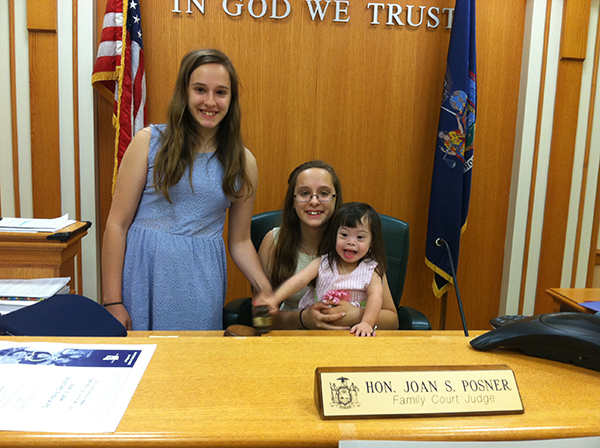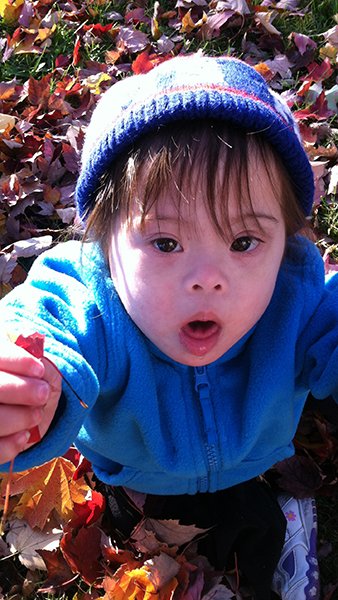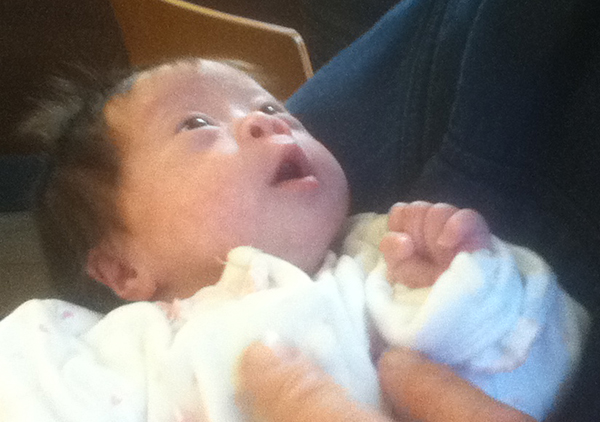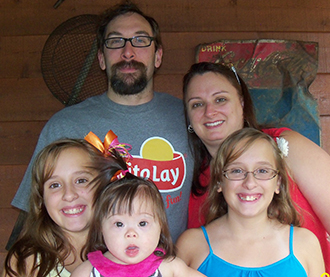All Children Need Love

By Jason Gehlert Photography by Andy Cox Photography
One phone call changed everything. Our seven year chase of adopting a child had finally reached its lengthy conclusion. This was it. It was a Friday and we decided that the following Monday we were done. My wife and I were seeking a boy to add to our family and found that to be a complicated process to achieve unless we were willing to adopt a special needs child.

That October, in a mall in Boston, we met our baby girl. The wave of emotions exploded as joy swept over my wife, our daughters, and myself. We decided to name her Cara after my mother, and soon after another visit, we brought her home the day before Thanksgiving 2011. Our adoption of Cara would come with some challenges that all families endure. As we would find out, some members of our family were still entrenched in old-school thought when it came to Down Syndrome. Other members of our family embraced Cara and added a new layer of support.

My wife’s occupation as a teacher would bring education and stability for Cara’s development. My strength interacting with special needs throughout the community and my patience would allow us to build a solid foundation for Cara. Our blended family of older children ranging from twenty-five to fourteen also brought their own unique blend of engagement. Cara would always have someone with her which was critical in her development. As I shifted my work schedule to nights, I was able to stay home with Cara and start building a bond that three years later would be the centerpiece of our relationship. Quite simply, Cara had successfully won me over and gave me the anchor I sorely needed in life. She would become my best friend, my light, my sunshine on the darkest of days. I would later join the Down Syndrome playgroup and even a Mother’s playgroup to gain further knowledge about Down Syndrome and add socializing to Cara’s already busy daily routine.


Throughout this process our understanding of Down Syndrome increased and although there were several negative articles on the Internet, we maintained our focus and love for Cara and how she changed our life. As Cara became older certain delays would become noticeable, increasing the stress of raising a special needs child. Our therapists told us that Down Syndrome children and adults can do anything we can do, it just may take them a different road to get there. That piece of advice soothed my mind and helped me focus on paving that road for Cara. My family and I learned a new language: sign language.
My degree in Communication allowed me to practice the theories of non-verbal and verbal communication and their benefits. We slowly adapted and increased our own base knowledge of signs and as a result Cara expressed herself with various sign language and as she would enter pre-school, this base would prove critical in her leap in vocalizing, imitation and mimicking. After the finalization of the adoption the judge made a point to congratulate us and commended our dedication and love for Cara. She was impressed with our ability to change our lifestyle through the regiment of therapies and learning a new language to provide Cara with the tools needed to succeed in life.
A year ago, I decided to join the Down Syndrome Association of the Hudson Valley, a local chapter in Upstate New York that covers multiple counties in our area. As one of the board members I brought my background in communication/media/publishing industries to broadening the scope of our cause. Many new parents were full of questions and our association provided the information and tools needed for these new families to succeed.

Some own their own businesses, others artists, actors, authors, mentors and advocates. Many work jobs in the community and play sports earning titles in swimming, baseball, and track and field. Down Syndrome can be challenging and the road may be longer than one may have hoped for. Yet, the love and laughter that these precious children share eases that journey.
Editor’s note: Jason Wolfgang Gehlert is the author of a number of books in a genre that can only be described as “Hair Raising.” To see his published works, go to: www.amazon.com/Jason-Gehlert/e/B009SO8I08


